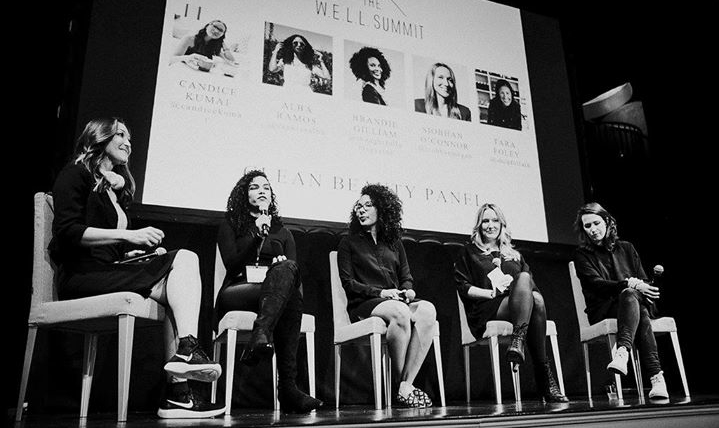
At every stage of women’s lives, nutrition and regular exercise are the cornerstones of good health and optimal energy. But certain vitamins and minerals become especially important at particular times of life. Knowing which matter most can help you choose the best foods and supplements.
Nutrition for Girls in Childhood and Early Teens
The best guarantee that growing girls get the nutrition they need is a diet abundant in fruits, vegetables, whole grains, low-fat dairy products, and lean sources of protein. Two nutrients are particularly important:
- Calcium: “Getting enough calcium is important for all ages, but it’s particularly important during adolescence and early adulthood, when bones are absorbing calcium,” says Heather Schwartz, MS, RD, a medical nutrition therapist at Stanford University Hospital and Clinics. Calcium and vitamin D are often paired in fortified foods such as milk. The reason: The body needs D in order to absorb calcium.
- Iron: Essential for healthy blood cells, iron becomes especially important when girls begin to menstruate. With each period, a woman loses small amounts of iron. “About 10% of American women are iron deficient,” says Dorothy Klimis-Zacas, PhD, a professor of nutrition at the University of Maine and co-editor of Nutritional Concerns of Women (CRC Press, 2003). “About 5% have iron deficiency anemia.” Symptoms of low iron include fatigue, impaired immunity, and poor performance at school or work.
Encouraging girls and young women to be more physically active while reducing high-calorie foods can help balance the energy equation. By starting early, they set a pattern of healthy eating that will carry them through life.
Nutrition for Women During Childbearing Years
Several nutrients are particularly important for women during adulthood, especially if they are capable of becoming pregnant.
- Folic acid: This form of B vitamin helps prevent neural tube defects, especially spina bifida and anencephaly. These defects can be devastating and fatal. Many foods are now fortified with folic acid. Most women get enough as part of their diet through foods such as leafy greens, a rich source of folic acid. However, some doctors recommend that women take a pregnancy supplement that includes folic acid, just to make sure they are getting the recommended 400 to 800 micrograms.
- B12: Like folic acid, B12 is essential for healthy nervous system development and function. Pregnant women who are vegans or vegetarians may fall short on B12, since it is present in animal protein and to a lesser extent in dairy. Teenage and adult women need 2.4 mcg. Recommended levels rise to 2.6 mcg for pregnant women and 2.8 mcg for lactating women.
- Omega-3s: These essential fatty acids, EPA and DHA, play many roles in the body, including building healthy brain and nerve cells. Some studies show that omega-3s, especially DHA, can help prevent preterm births. Even women who don’t plan to have children should be sure to get plenty of omega-3s. These healthy oils have been shown to reduce the risk of heart disease, the number one killer of women.
- Vitamin D: Over the past decade, dozens of studies have revealed many important roles for vitamin D, the nutrient that skin cells produce when they are exposed to sunlight. The recommended daily intake of Vitamin D is 600 IU per day, although recommended levels are under review. If you avoid the sun or live in the northern half of the U.S., ask your doctor whether your vitamin D level should be tested.
Nutrition for Women During the Senior Years
After menopause, women’s bodies change again. The requirement for iron drops because women are no longer menstruating. Requirements for some other nutrients increase because the body loses some of its ability to absorb or metabolize them. Here are the most important nutrients to consider:
- Calcium: Although some bone loss is inevitable with age, women can slow the process by getting enough calcium and vitamin D. Women between the ages of 50 and 70 need 1200 mg of calcium and 600 IU of Vitamin D a day. Women older than 70 require 1200 mg of calcium and 800 IU of Vitamin D a day. Because the skin becomes less efficient at converting sunlight to vitamin D as we age, older women may need more vitamin D in the form of supplements. Talk to your doctor.
- Fluids: Fluid needs increase as women age. The reason: Kidneys become less efficient at removing toxins. “Drinking more fluids helps kidneys do their job,” Schwartz says. “Unfortunately, thirst signals often become impaired with age, so people are less likely to drink enough water and other fluids.” Rather than fret about how many glasses to drink, Frechman says, check the color of your urine. “It should be clear or very pale colored. If it becomes darker, you need more fluid.”
With age, and especially after menopause, calorie requirements drop again. “As women age, they inevitably lose some muscle mass,” Schwartz says. “Regular physical activity can help maintain muscle.”
Read more on: webmd.com







